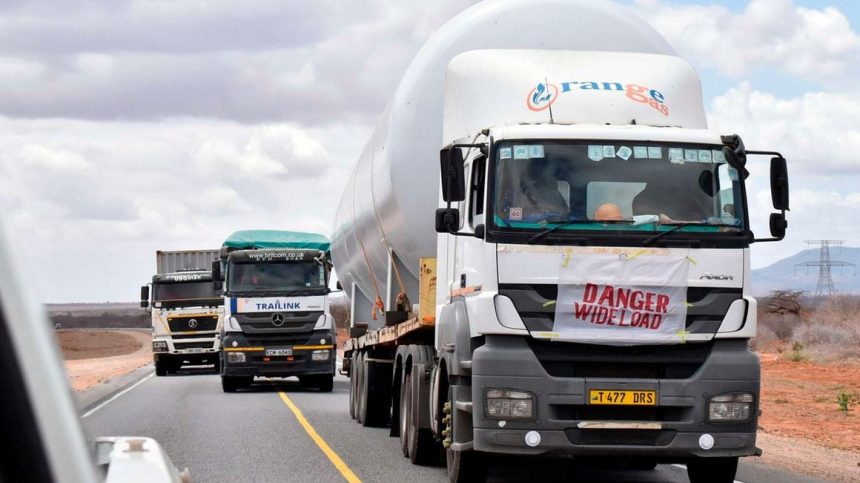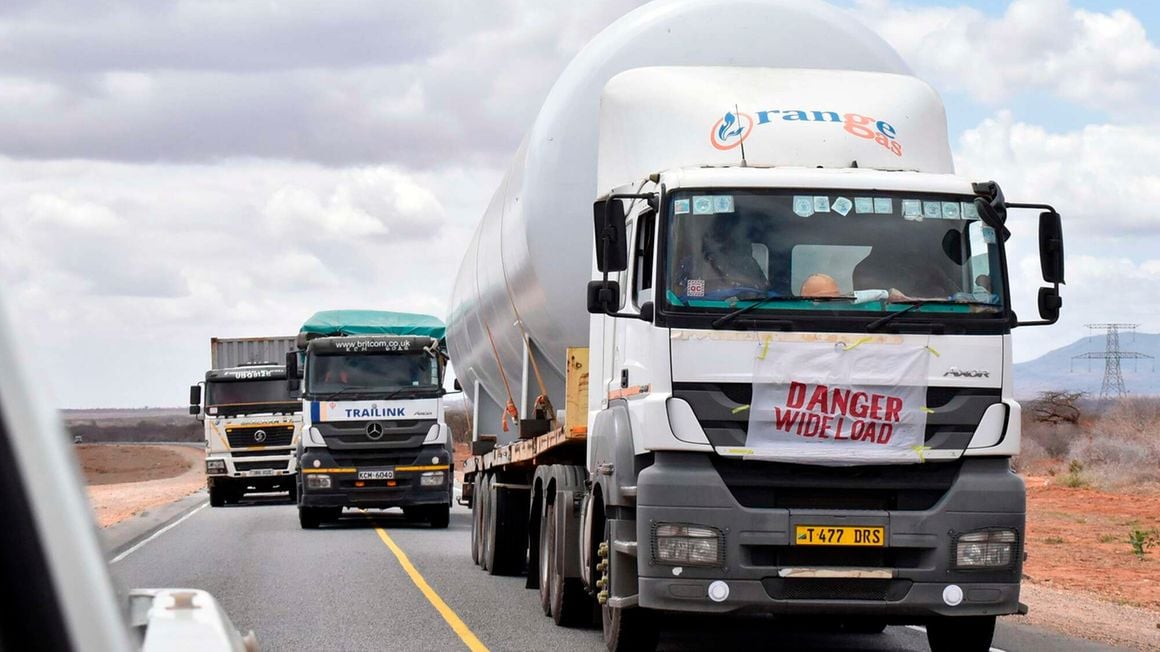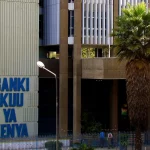Kenya’s goods trade surplus with Africa reached record levels in the first three months of the year driven by the fastest growth in exports for 12 years and a first fall in expenditure on imports in three years, official data shows.
Traders sold goods worth Sh98.85 billion to African countries in the January-March 2023 period against an import bill of Sh61.72 billion, according to provisional data collated by the Central Bank of Kenya.
Earnings from exports in the period were 23.33 percent higher than the previous year, the strongest growth since 2011, while imports fell 6.02 percent year-on-year from Sh65.67 billion in 2022.
This resulted in a merchandise trade surplus of Sh37.14 billion for the review period, a 156.45 percent climb over the same period last year.
The widening gap in exports and imports largely helped with increased goods trade with Uganda amidst a drop with Tanzania, the data suggests.
A faster growth in exports to the continent than imports, economists say, protects job opportunities for locals and eases pressure on the shilling.
This has come at a time President William Ruto has taken a leading role in championing the removal of trade barriers among African countries to ease the movement of goods, services and labour through the integration of regional trading blocs.
Read: State plots unfettered access to parastatals’ surplus billions
The integration is aimed at creating the world’s largest single market of about 1.4 billion people with an estimated economic output of more than $3 trillion (Sh415.2 trillion) under the ambitious African Continental Free Trade Agreement (AfCFTA).
The trade diplomacy adopted by Dr Ruto is a continuation of a policy initiated by his predecessor, Mr Uhuru Kenyatta, who on June 8, 2018, led the country in presenting documents ratifying the proposed Comesa-East African Community- Southern African Development Community tripartite free trade area to the Comesa secretariat.
Upon the attainment of the tripartite deal which will create a market of 27 countries, Nairobi plans to lead the way in pushing for more integration with other regional blocs including the Economic Community of West African States and the Maghreb [which covers Algeria, Libya, Mauritania, Morocco and Tunisia, but excludes Egypt].
Analysts have, however, cited a weak business environment characterised by elevated interest rates, high and unpredictable tax rates as well as bureaucratic red tape in many African countries as the biggest hurdles to realizing the free flow of goods on the continent.
“Cultural and language barriers also make it tough to appreciate the market opportunities,” said Ken Gichinga, chief economist at Mentoria Economics.
Africa accounted for Sh160.57 billion, or 19.41 percent, of Kenya’s Sh827.20 billion total trade value in the first quarter of the year, modestly growing from 18.27 percent in the prior year.
Uganda remained the country’s largest destination, accounting for nearly a third of goods exports to Africa.
Kenyan traders trucked goods valued at Sh30.96 billion into Uganda in the three-month period, a 50.09 percent growth over the same period last year.
Kenya largely exports vegetable oils, fuel, pharmaceuticals, iron and steel as well as paper and paperboard to the land-locked country.
Imports from Uganda such as dairy products, eggs, sugar and wood amounted to Sh10.62 billion in the review period, a growth of 34.20 percent year-on-year.
The CBK data shows that goods that Kenya sold to Tanzania flat-lined at Sh14.00 billion compared with Sh13.95 billion in the prior year, while imports contracted 32.66 percent to Sh7.99 billion.
Kenya mainly imports cereals, vegetables and wood from Tanzania and it exports pharmaceutical products, plastics, iron, and steel to the neighbouring State
South Africa remained Kenya’s top source market on the continent, with Kenyan traders bringing in goods such as vehicles and spare parts, minerals, fuel, iron and steel as well as machinery valued at Sh16.52 billion in the review period.
The value of exports from Africa’s foremost economy was 6.85 percent lower than Sh17.73 billion a year earlier.
South Africa was followed by Egypt which exported goods such as plastics and sugar worth Sh11.57 billion in the three-month period, a marginal 3.06 percent growth over Sh11.23 billion the year before.
Africa’s under-developed transport networks have been blamed for raising the cost of goods and services by as much as 40 percent, rendering intra-African trade uncompetitive compared with trade with developed continents such as Europe.
For example, the first consignment of Kenya’s value-added tea to Ghana which left the country last October reached Port of Tema in February this year, underlining the infrastructural, security and tariff hurdles hampering intra-African trade.
Read: Can William Ruto tilt EAC trade balance?
“This is why we must take such barriers as weak transport and logistics capacity, customs-related delays, rules of origin, import bans and export restrictions, quotas and levies, technical barriers, import permits and licenses, very seriously because they ultimately reverse all the depths we try to make towards a free trade area,” Dr Ruto told Africa’s trade ministries’ officials and private sector leaders in Nairobi on May 29.
“They may look small, incremental but their sum total amounts to a reversal of what we are trying to achieve.”




